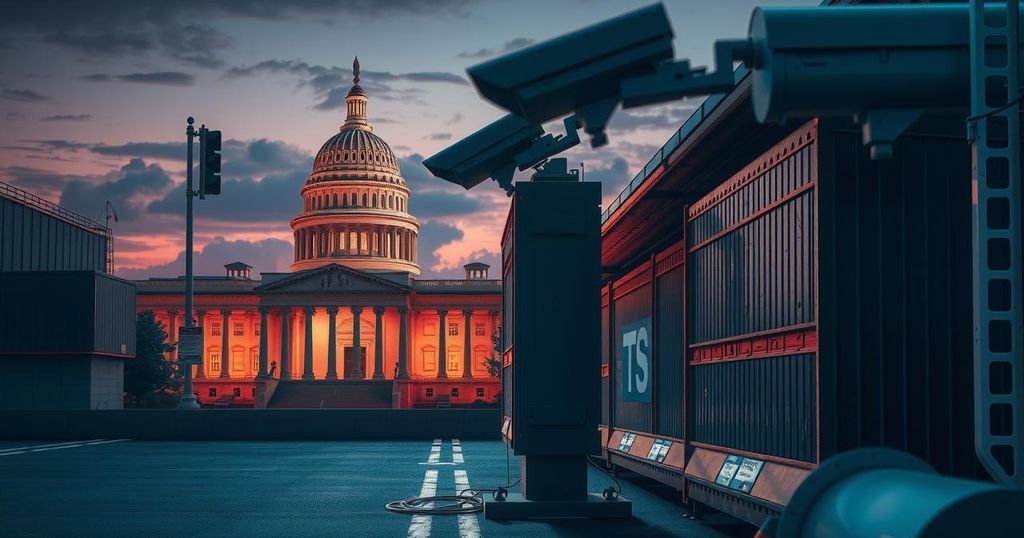President Daniel Noboa of Ecuador is campaigning for re-election as he faces significant challenges, including a high crime rate and human rights concerns. His approval ratings remain relatively high due to a tough stance on crime. Despite these efforts, criticisms regarding his governance and potential authoritarian actions persist, illustrating the contentious political landscape leading up to the election.
President Daniel Noboa of Ecuador is seeking re-election amidst significant challenges, including persistent crime, continuous blackouts, and a controversial handling of human rights issues. Despite these trials, his approval ratings remain above 50%, bolstered by a widely accepted tough approach to crime. Luisa Gonzalez is his primary rival from the prior election, but Noboa’s imperative on security has kept him in a favorable position.
Noboa, who ascended to power under extraordinary circumstances after the abrupt dissolution of his predecessor’s government, leads a nation grappling with high homicide rates stemming from drug trafficking and gang violence. An assassination of a fellow candidate heightened concerns about security and helped garner public support for his hardline stance. His regime has faced scrutiny for civil rights violations amid escalating violence.
His decision-making capabilities have been questioned, particularly during an electricity crisis marked by prolonged blackouts, leading to unrest and calls for his removal. Experts have noted Noboa’s inexperience and lack of political acumen as barriers to effectively addressing these issues. Nonetheless, he continues to position himself as an agent of change against traditional politics, appealing especially to younger voters.
While Noboa’s use of emergency measures and military support is aimed at controlling crime, it has led to alarming human rights violations. Reports indicate serious abuses, including extrajudicial killings and torture, raising ethical concerns regarding his administration’s actions. Recent incidents involving the armed forces have further ignited public outrage and skepticism about his governance.
His pursuit of a second term includes controversial strategies to maintain authority, with legal rulings opposing his attempts to circumvent constitutional rules for re-election. Noboa faces growing pressure from Indigenous rights groups criticizing his governance style and actions against democracy. His campaign efforts focus on appealing directly to youthful demographics, as he distances himself from traditional political practices.
The current political landscape in Ecuador is characterized by a surge in crime and violence, particularly related to drug trafficking. High-profile incidents, including political assassinations and violent protests, have marked President Noboa’s term since he assumed office under unusual circumstances. His administration has faced criticisms of human rights abuses and authoritarian tendencies while attempting to maintain stability and public support amid worsening crime rates.
In conclusion, President Daniel Noboa’s bid for re-election is fraught with challenges stemming from high crime rates and allegations of civil rights violations. Despite these obstacles and criticisms of his governance style, he retains significant popularity, particularly among younger voters. The outcome of the upcoming election will determine whether he can effectively address Ecuador’s pressing issues or if his popularity will decline in the face of continued discontent.
Original Source: www.aljazeera.com




